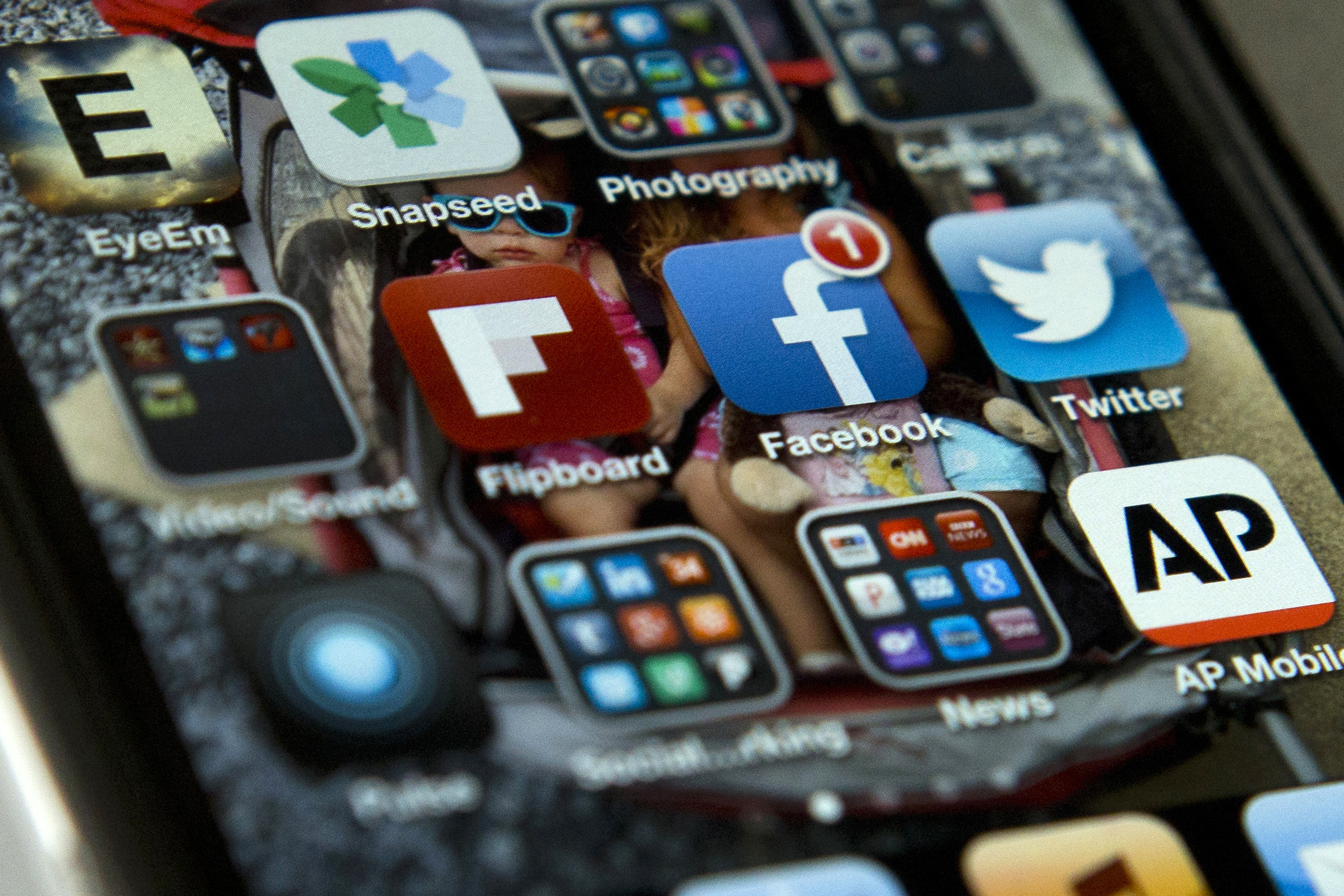It was 1:30 a.m., and Anna was trying to keep her mind off her ex-boyfriend, with whom she had ended a painful relationship hours earlier. It was too late to call the therapist she was seeing to cope with low self-esteem and homesickness, and too late to stop by a friend’s house.
So, she turned to social media. “I’m having a really hard time right now,” Anna — who asked to be identified by a pseudonym — posted on Facebook. “Is there anyone I can call and talk to until I feel better?”
Almost immediately, three people responded with offers to talk. They were friends she had met playing Quidditch, a sport based on the Harry Potter fantasy books, and she kept in touch with them online. Anna talked to two of them until she was able to fall sleep.
“I used to be very shy about posting personal stuff on Facebook because I didn’t want people judging me,” said Anna, 26. “But that night, I was in such a bad place; I was desperate, and I thought anything would help.”
The negative effects of social media on young people’s mental health are well-documented by researchers and the press. Social media can drive envy and depression, enable cyberbullying and spread thoughts of suicide.
But some academics and therapists are proposing a counterintuitive view: They have found that social media may also help improve mental health by boosting self-esteem and providing a source of emotional support. These benefits have attracted too little attention from journalists and parents, they say.
“Yes, social media is contributing to a new era of adolescent (and adult) social stress, but when we accept that it is here to stay, we can also see it as a new opportunity for connection and mindfulness,” according to an online advice column published by the University of California-Berkeley’s Greater Good Science Center.
“We need to think about social media as not being absolutely good or bad,” said Amy Gonzales, an assistant professor who studies social media and health at Indiana University’s Media School. “We need to think about how to come up with appropriate uses of this stuff.”
Social media have become integral to the lives of young adults and teens: 45 percent of teenagers say they use apps such as Facebook, Twitter and Instagram every day.
In research published by the National Center for Biotechnology Information, Gonzales found that college students who viewed their own Facebook profiles enjoyed a boost in self-esteem afterward.
By curating their online personas to reflect their best traits — choosing flattering pictures and sharing exciting experiences — users remember what they like best about themselves.
“It’s like the way you might feel good about yourself when you check yourself out in the mirror before a date,” Gonzales explained.
Other studies reveal that people feel more social support when they present themselves honestly on social media, and tend to feel less stressed after they do so.
“You get much broader affirmation by posting on social media than from calling a relative,” Anna said. “It’s one thing if you text a friend; it’s another thing if you have a bunch of people trying to help you out.”
Matthew Oransky, an assistant professor of adolescent psychiatry at Mount Sinai Hospital in New York City and a practicing therapist, said many of his patients find social connections online they could not find elsewhere. This is particularly true of marginalized teens, such as kids in foster homes and LGBT adolescents.
“I’ve seen some of the really big positives, which is that kids who are isolated can find a community,” Oransky said. “They’re often first able to come out to online friends.” In a 2013 survey, 50 percent of LGBT youth reported having at least one close friend they knew only from online interactions.
Young adults with serious mental illness such as schizophrenia and bipolar disorder can also find social support via social media, according to a study published in 2016. “These people are openly discussing their illness online,” said John Naslund, a research fellow at the Dartmouth Institute for Health Policy and Clinical Practice.
Social media postings can help foster greater acceptance of mental health problems. “It’s definitely real that there’s hostility online,” Naslund said. “But we’ve found that comments related to mental health are overwhelmingly positive. People can learn how to cope with symptoms and how to find the right support.”
But parents can and should help their children use social media wisely, experts say. Oransky suggests, for instance, that parents talk with kids about the privacy consequences of posting compromising material, such as revealing pictures or personal details that might affect their job prospects. Naslund recommends that people start cautiously on social media by using pseudonyms.
Anna uses filters to keep co-workers from seeing her mental health posts. But she views social media as a way to act on her therapist’s recommendation to reach out for support when she needs it. “If you trust your friends,” she said, “I don’t see why you shouldn’t embrace the social media option.”


